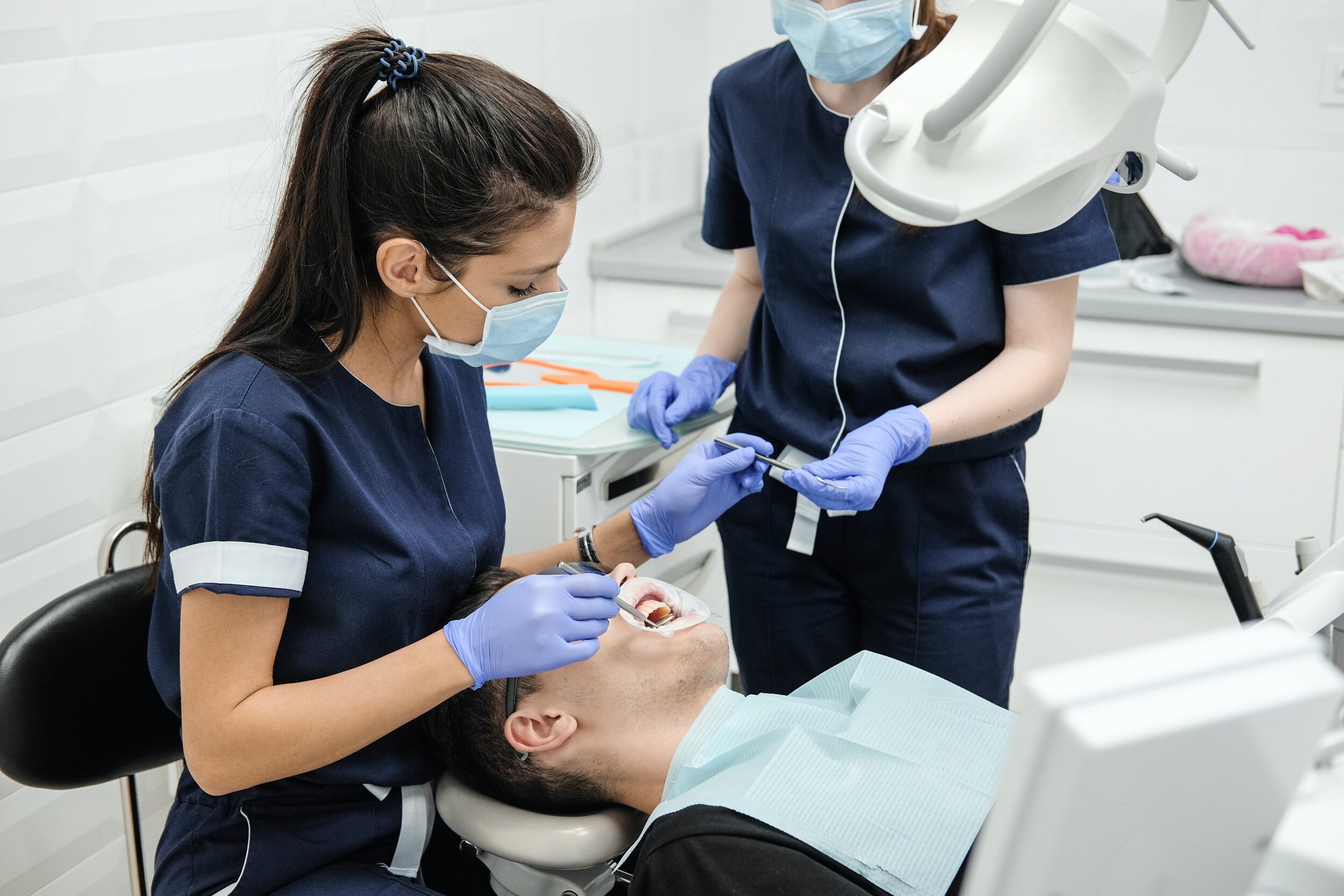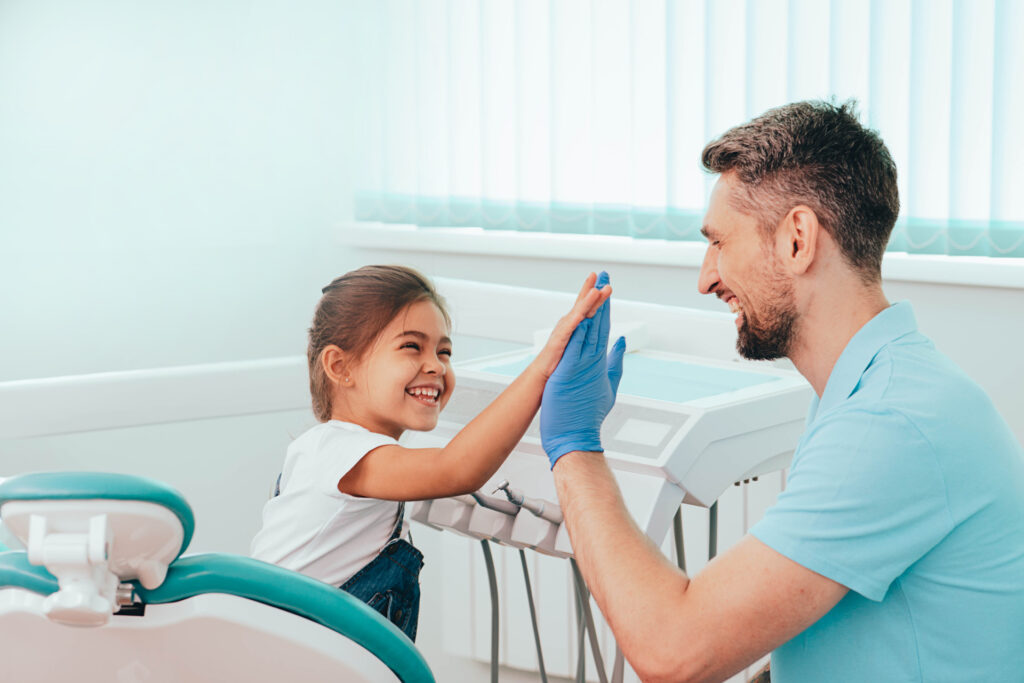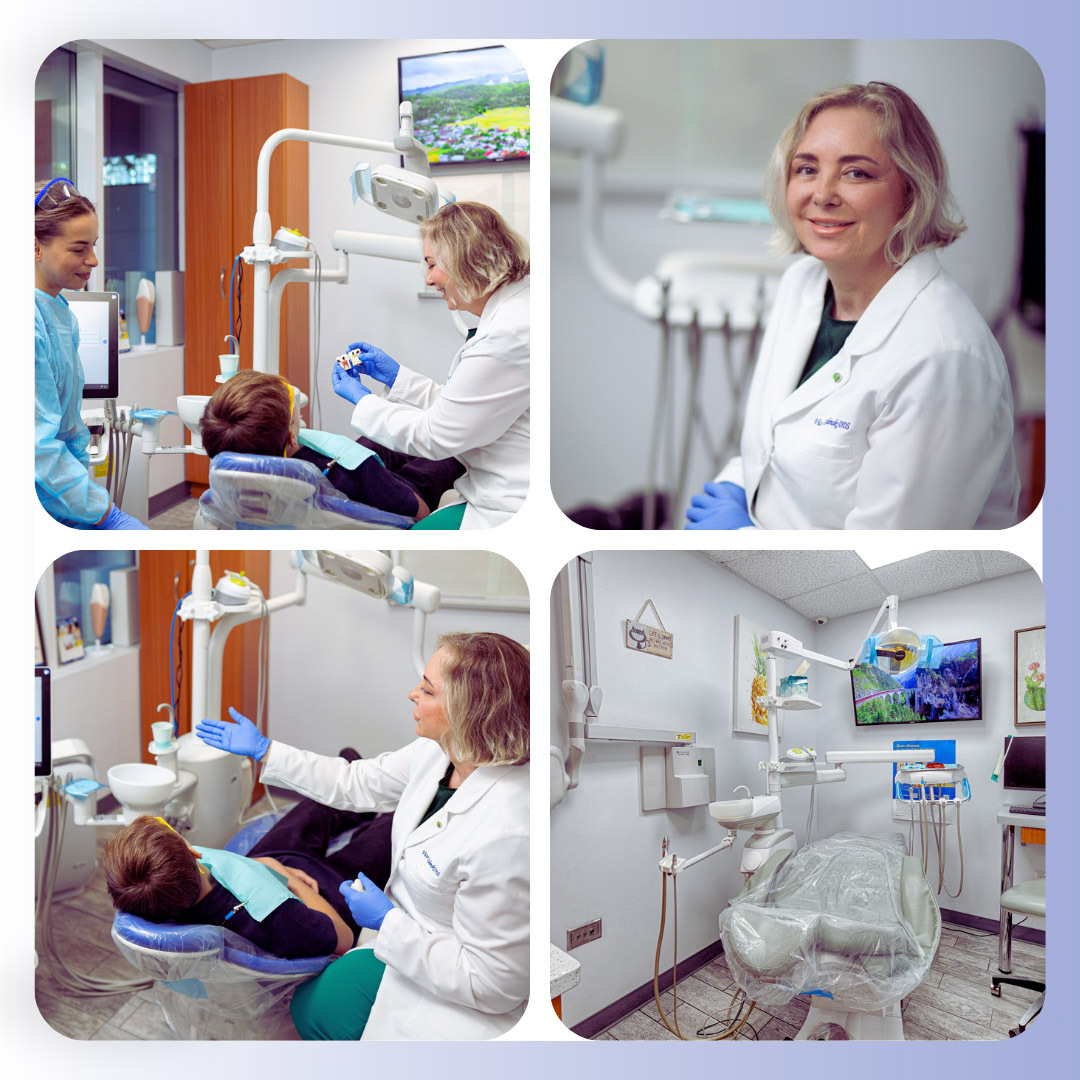Trends in Cosmetic Dentistry that are redefining smiles
Checking Out Innovative Treatments: What to Anticipate During Your Following Dental Expert Visit
During an oral see, individuals can expect a variety of innovative therapies intended at enhancing their total experience. With the intro of advanced analysis devices and sedation options, the emphasis is on minimizing pain and anxiety. Additionally, the shift in the direction of minimally intrusive procedures and electronic modern technology assures boosted efficiency. These growths question concerning the future of dental treatment and what it implies for patient end results. What could these improvements signify for regular oral sees?
The Surge of Pain-Free Dental Care

Additionally, the integration of laser technology has actually further improved the pain-free method, permitting accurate therapies that decrease trauma to bordering tissues. As an outcome, clients are more probable to seek regular oral care, adding to better oral wellness outcomes. Generally, the surge of pain-free dental care signifies a substantial development in just how oral practices prioritize person comfort and well-being, cultivating an extra favorable relationship between clients and their dental wellness providers.
Advanced Diagnostic Devices
Innovations in pain-free dental care have paved the way for boosted individual experiences, but the evolution of oral treatment does not quit there. The combination of advanced analysis tools plays a vital duty in boosting oral health analyses. Technologies such as digital X-rays, which reduce radiation direct exposure, allow dental professionals to obtain high-resolution photos rapidly. This technology allows more exact medical diagnoses of cavities, bone loss, and various other dental problems.
Cone-beam calculated tomography (CBCT) uses three-dimensional imaging, further refining treatment preparation, especially in complicated situations like implants or orthodontics. In addition, caries detection tools utilize laser fluorescence to determine degeneration at its earliest stages, making certain timely treatment.
These sophisticated analysis tools not just enhance the accuracy of medical diagnoses however also foster proactive therapy methods. As dental care remains to evolve, these advancements are important for providing personalized and reliable dental health and wellness services, inevitably profiting clients in their dental journeys.
Sedation Options for Anxious Patients

Kinds of Sedation Available
Just how can distressed people locate convenience during dental treatments? Different sedation alternatives are available to assist relieve their worries. Nitrous oxide, generally referred to as chuckling gas, is a preferred selection. It provides a light level of sedation, permitting individuals to stay awake while feeling unwinded. Dental sedation entails taking a recommended medicine prior to the appointment, which aids tranquil stress and anxiety. For much deeper sedation, intravenous (IV) sedation may be used, delivering medication directly right into the bloodstream for a much more extensive result. General anesthetic is an additional alternative, usually scheduled for comprehensive procedures, providing the client entirely unconscious. Each sedation type has its considerations and advantages, allowing dentists to customize the approach to the individual needs of their nervous individuals.
Advantages for Anxious People
What benefits do sedation alternatives use to nervous clients undergoing oral treatments? Sedation methods can greatly lower anxiousness, permitting clients to experience a calmer, extra relaxed setting. This can result in better cooperation during therapy, resulting in a smoother dental check out. Additionally, sedation can lessen pain, as patients commonly really feel much less discomfort or stress throughout procedures. Lots of patients might not remember the treatment, which can aid reduce concern linked with oral gos to. Sedation can be especially beneficial for those with a strong gag reflex or problem resting still. Generally, these alternatives empower nervous clients to seek required dental treatment without the overwhelming tension they might generally experience.
Minimally Intrusive Procedures
Minimally intrusive treatments represent a significant innovation in dental care, concentrating on preserving as much of the natural tooth framework as possible. Usual techniques in this category consist of laser therapies and air abrasion, which can boost individual convenience and minimize recovery time. Insights from client experiences highlight the efficiency and allure of these cutting-edge methods in modern dental care.
Benefits of Minimally Invasive

Usual Methods Clarified
Advancements in oral modern technology have caused different minimally intrusive treatments that prioritize patient comfort and dental health and wellness. One usual strategy is air abrasion, which utilizes a stream of air combined with fine bits to remove degeneration without exploration. One more is laser dental care, which targets particular locations with precision, lessening damages to bordering cells. Furthermore, silver diamine fluoride (SDF) is put on stop cavity development without the requirement for standard boring. Composite bonding is additionally widespread, allowing for the repair work of teeth with natural-looking materials, while maintaining as much of the original tooth framework as feasible. These techniques not just reduce healing time but also boost the total dental experience by making therapies less challenging and a lot more effective.
Individual Experience Insights
Just how do people perceive their experiences with minimally invasive dental procedures? Numerous clients report an increased feeling of convenience and lowered anxiety when undergoing these treatments. Making use of sophisticated advice technologies, such as laser dental care and air abrasion, enables for less discomfort and quicker recovery times. People appreciate that these treatments commonly need much less anesthesia and cause very little bleeding, which adds to an extra pleasurable visit. In addition, the focus on protecting healthy tooth framework reverberates with individuals, as it straightens with their wish for long-lasting oral health. Generally, client responses suggests that minimally intrusive methods not just enhance their oral experience but additionally foster rely on their oral care providers, advertising a much more positive relationship with oral health.
Digital Impressions and 3D Printing
Welcoming innovation, many oral methods are currently using digital perceptions and 3D printing to boost client treatment and simplify procedures. Digital perceptions change conventional mold and mildews, capturing exact images of a client's gum tissues and teeth using sophisticated scanning modern technology. This method decreases discomfort, gets rid of the demand for unpleasant materials, and supplies prompt results for both dental professionals and individuals.
All at once, 3D printing is changing the creation of oral appliances, such as crowns, aligners, and bridges. With digital designs generated from the impressions, 3D printers produce personalized remedies rapidly and accurately. This development not only accelerates the production process however likewise assures a far better suitable for the patient, leading to improved results.
Enhancements in Aftercare and Follow-Up
The assimilation of digital impacts and 3D printing in dental care has paved the way for substantial renovations in person aftercare and follow-up. Enhanced precision in treatment planning allows dental specialists to produce tailored aftercare procedures that attend to private client requirements. With the capability to produce custom-fitted devices and remediations rapidly, clients experience lowered recuperation times and improved comfort.
Innovations in telehealth have transformed follow-up visits. Patients can currently involve in digital assessments, enabling prompt evaluations without the need for in-person appointments - Cosmetic Dentistry. This method not just saves time but likewise boosts accessibility for those with movement challenges or hectic timetables
Moreover, the use of mobile applications permits real-time tracking of recuperation development, promoting immediate interaction in page between clients and dental groups. These innovations collectively bring about more effective, tailored aftercare, guaranteeing that individuals obtain comprehensive support throughout their oral trip.
Regularly Asked Questions
How Frequently Should I See the Dental Professional for Exams?
The majority of dental professionals recommend visiting the dental expert for check-ups every six months. This regularity aids maintain oral health and wellness, enables early discovery of problems, and guarantees prompt treatment, promoting total wellness and avoiding extra serious problems.
What Should I Do if I Have Dental Anxiety?
To take care of dental anxiousness, one should connect concerns with the dentist, take into consideration relaxation methods, bring an encouraging buddy, timetable visits throughout quieter times, and discover sedation options to improve convenience during procedures.
Are There Any Kind Of Age Constraints for Sedation Dental Care?
Sedation dental care generally has no rigorous age restrictions; however, specialists usually assess specific health conditions and details demands (Teeth Cleaning). Pediatric individuals might require unique considerations, while senior individuals may need customized approaches to assure safety and security and convenience
The Length Of Time Do Dental Treatments Usually Take?
Dental procedures usually take anywhere from thirty minutes to several hours, relying on the complexity and sort of therapy. visit here Basic cleansings are quicker, while substantial treatments, like root canals or implants, require more time and attention.
What Can I Eat After My Dental Consultation?
After an oral consultation, soft foods like yogurt, applesauce, or mashed potatoes are advisable. Patients need to avoid hard, crunchy, or sticky items to ensure convenience and shield any recent treatments or dental job. Hydration is necessary.
Sedation options play an important function in giving comfort for clients experiencing anxiety throughout dental brows through. What advantages do sedation alternatives provide to nervous clients undergoing oral treatments? Numerous people may not keep in mind the procedure, which can help alleviate concern linked with oral brows through. Improvements in oral technology have led to numerous minimally intrusive treatments that prioritize individual comfort and dental health and wellness. How do individuals regard their experiences with minimally invasive dental procedures?